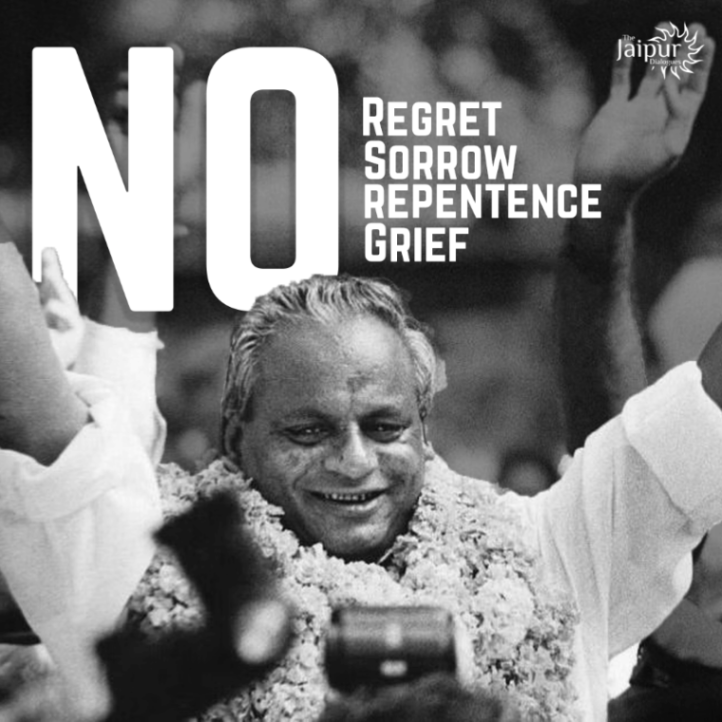December 6, 1992. The date is not just a footnote in history; it's a day etched deep into the collective memory of a civilization, a day that, for many, signified a profound rupture, a wound bleeding into the very soul of Bharat. Yet, for some, particularly the late Kalyan Singh, the then-Chief Minister of Uttar Pradesh and a central figure in the events of that day, it was a declaration, not a disaster. His words, uttered in a later interview – "No regret. No repentance. No sorrow. No grief." – were more than a defiance of critics; they were a thunderclap, echoing the raw, unyielding conviction of a man who saw sacred duty where others saw sacrilege.
To truly grasp the essence of those words, and the inferno they ignited, one must journey back to the crucible of emotions that defined that era.
The Simmering Resentment: A History Long Suppressed
It was a time of simmering resentment, of a history long suppressed, of a wound festering for centuries. The story of Bharat, the land of the Rishis and the avatars, was, for many, one of constant struggle, of a dharma under siege. Generations had whispered tales of desecrated temples, of a divine birthright usurped. And at the heart of this anguish lay Ayodhya, the very cradle of Bhagwan Ram, now overshadowed by a structure that stood as a stark reminder of conquest.
More Than a Movement: A Spiritual Awakening
The Ram Janmabhoomi movement was not merely a political slogan; it was a spiritual awakening. It was the roar of a lion long slumbering, the collective yearning of millions for justice, for restitution, for the reclaiming of a sacred heritage. It was fueled by an unwavering faith, a devotion so profound that it transcended the mundane and touched the sublime.
Every Kar Sevak, every barefoot pilgrim who walked for miles, every chant of "Jai Shri Ram" was an offering, a prayer, a vow. They were not mere protestors; they were devotees, seething with a righteous anger born of historical injustice, their hearts ablaze with the fire of devotion.
The Air Crackled: A Volcanic Eruption of Collective Will
Imagine the scene: the vast throng, a sea of saffron and fervent faces, their voices a singular, thunderous invocation. They had waited. They had prayed. They had pleaded. And now, patience had worn thin, replaced by a volcanic eruption of collective will. The air crackled with an almost palpable energy – a heady mix of exhilaration and an unspoken tension. The frustration of decades, of broken promises, of a perceived apathy from the powers that be, had reached its zenith. This was not a riot; it was a cleansing, a karmic reckoning.
Kalyan Singh: At the Nexus of the Tempest
Kalyan Singh, as the Chief Minister, stood at the nexus of this tempest. He knew the risks. He knew the potential for chaos. Yet, he also understood the profound, visceral sentiment of the masses. His words, "I did not commit the sin of causing harm to Kar Sevaks," reveal a man deeply aligned with the spiritual current of the movement. For him, the protection of these devout souls, who had come to reclaim their faith, was paramount. He saw their anger, not as mere lawlessness, but as the manifestation of a deep-seated spiritual yearning, a righteous indignation against a historical wrong.
The Shattering of a Psychological Barrier
And when the structure fell, it was not just bricks and mortar collapsing. It was the shattering of a psychological barrier, the tearing down of a symbol that had represented generations of humiliation. The raw emotion that surged through the crowd was overwhelming. It was an outpouring of pent-up anger, a violent release of centuries of frustration. It was not pretty, it was not polite, but it was profoundly human. It was the cry of a people reclaiming their narrative, their identity, their sacred space.
A Profound Patriotism: Reclaiming a Narrative
The critics, those who decried it as a "national shame," failed to comprehend the depths of this emotional and spiritual landscape. They saw only the breaking of laws, the defiance of authority. But for millions, it was an act of profound patriotism, a reassertion of national pride rooted in civilizational self-respect. It was a moment of liberation, a loud and defiant declaration that Bharat would no longer cower, no longer accept the erasure of its past.
For Kalyan Singh, December 6, 1992, was not an event to be mourned but to be celebrated. It was the culmination of a sacred duty, a step towards the restoration of dharma. His words, devoid of regret, brimming with pride, were not just a political stance; they were a testament to his unwavering conviction, a reflection of the deep-seated anger and spiritual yearning that had consumed a generation.
It was a moment born of human passion, of a historical burden, and of an unyielding faith in the divine destiny of Bharat. And in the roar of the crowds, and the resolute words of Kalyan Singh, one could hear the ancient echoes of a civilization rising, once more, to claim its rightful place.


Discussion
Start the conversation
No comments yet
Be the first to share your thoughts on this article. Your insights could spark an interesting discussion!